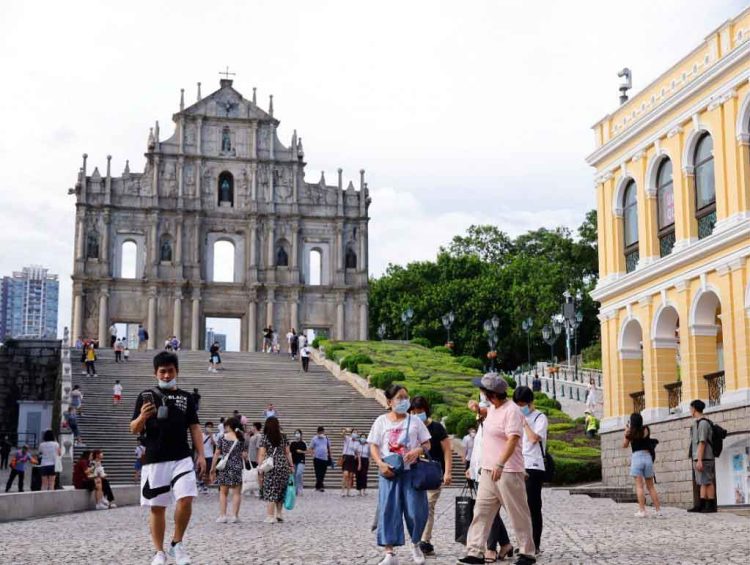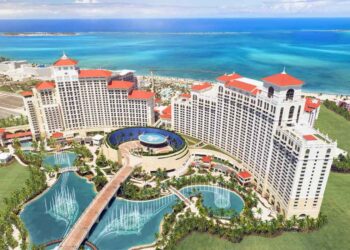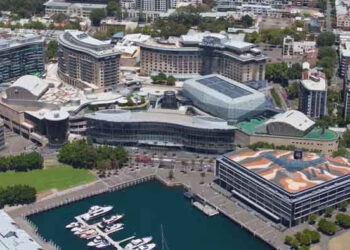Macau’s six gaming concessionaires had a giant win last night, when the Macau government released many details of the upcoming amendments to the Macau gaming law, in preparation for the re-tendering of Macau’s gaming concessions to take us past the 26 June expiry of the six current licenses. Almost all details released were net positives for the incumbents, silencing the chorus of doomsayers who had gone so far as to declare Macau “uninvestable.” I don’t want to say I told you so, but …
SUPER SIX
The biggest news of all was the decision to retain six concessionaires, the exact same number that currently exists, putting the incumbent sextet firmly in pole position. This should go a long way to finally putting to bed the multitude of black swan scenarios which have been circulating in recent months. Such scenarios, which ranged from somewhat plausible to outright ridiculous, included the demise of or restrictions to the US operators, various postulated mergers (MGM and SJM, Galaxy and Wynn), Chinese state owned enterprise takeovers, or a forced reduction of the six concessions back to five, four or even just three.
There will no doubt be a host of companies from around the world who will eagerly take part in the tender process for the six spots up for grabs, but for a newcomer to unseat one of the existing concessionaires will be a very tall order. There are many benefits to incumbency, not least of which being the fact that we have come to know and understand the good, the bad and the ugly of the Macau big six – Galaxy, Melco, MGM China, Sands China, SJM Resorts and Wynn Macau – over the past 20 years. All six have executed workmanlike and serviceable performances in designing, building, operating and maintaining very complex businesses. The Macau government will need some highly compelling reasons to subject itself to the destabilization associated with the expulsion of one or more of these six to install an unknown quantity or quantities. Better the devil you know.
It was also definitively confirmed yesterday that the concept of sub-concessions will be dispensed with, and even that the so-called satellite casinos have three years to find an exit plan – as a result of a new requirement that after that period all casinos must be physically housed in properties owned by the concessionaires.
DOWN TO A DECADE
The current casino concession cycle, now in its final six months, was 20 years, and the one before that was 40 years, but it was obvious from the moment the public consultation document was released on 14 September 2021 that the Macau government wanted to reduce the length of concessions. The announcement that concessions will become 10 years in length (with the possibility of being extended up to three years by the government under exceptional circumstances) therefore comes as no surprise. The concessionaires won’t delight in the length of their licenses being halved compared to last time around, and they will certainly be more reticent to invest, especially in the latter part of the license decade. If the new standard license period in Macau is to be 10 years, we might see a boom-and-bust cycle of investment by the concessionaires, where they are only prepared to make substantial investments in the first two or three years of the decade, and then wait out the remainder to see whether they receive another license. Perhaps the Macau and mainland China governments are perfectly satisfied with this, not wanting the scale of the industry to increase? And don’t forget the elephant in the room – the possible end of One Country, Two Systems in 2049. But that’s a discussion for another day.
MAX TAX
While most commentators didn’t think the special gaming tax of 35% would change, and it wasn’t a matter raised by the government during the consultation process, it’s nice to have it absolutely confirmed yesterday. Additional government imposts nudge the effective rate up to nearly 40%, and it’s hard to imagine such a high tax being made any higher – or lower, given the Macau government’s heavy reliance on the tax as its main source of revenue. Even with the Macau gaming tax as high as it is, the concessionaires are accustomed to it, so we can notch this one up as another win for them.
LEAVE US ALONE
Another big positive for the concessionaires yesterday was the unexpected scrapping of the proposal to have a government representative or delegate attached to each concessionaire. Several commentators, including yours truly, had highlighted how this idea might backfire for the government, possibly even burdening the SAR with unforeseen consequences such as corporate liability issues. In any event the government has numerous levers it can use to control the concessionaires without the need for such a representative. So perhaps it was decided that discretion was the better part of valor when it came to this idea.
An even bigger win for the operators was the language we heard yesterday about the proposal requiring government authorization before concessionaires could declare dividends for their shareholders – mostly the upstream listed companies operating the wider integrated resorts. While there was nothing in black and white given to the press yesterday on the matter, during the question-and-answer session it was suggested this proposal would be watered down, with statements that the government “still retains various controls” and “will need to be informed prior to concessionaire major financial decisions being made.” We will not know for sure until we see the actual wording of the draft amendments from Macau’s Legislative Assembly, but so far it is very good news for the concessionaires.

CAPITAL CONSTRAINTS
It was widely expected that the minimum concessionaire capital structure would be substantially increased from the suitable-20-years-ago but now-paltry amount of MOP$200 million (US$25 million). And indeed, it was – to MOP$5 billion (US$625 million). But even more interestingly the local Macau resident so-called Managing Director minimum ownership of 10% was increased to just 15%, where considerably larger increases had been conjectured. Does this mean six Macau locals are going to have to write a check for MOP$750 million apiece? Probably not. In a 25 October public consultation session DICJ Subdirector Lio Chi Chong heavily implied current arrangements for the local shareholding, which do not require a beneficial economic interest or voting rights, would remain unchanged. However, just as with the delegates and dividends issues, we will not know for sure until we see the precise wording of the draft amendments.
Another point made in the document distributed to the press yesterday was that only a certain proportion of concessionaires could be floated on a public stock exchange – the stated policy intention being for concessionaires to maintain a closer connection to Macau. A maximum figure of 30% was mentioned verbally in yesterday’s press conference, with the remaining 70% or more presumably being retained by the controlling shareholder. There is also some confusion amongst the commentariat on this matter as the Chinese version of the document circulated yesterday says this 30% maximum also applies to controlling shareholders (which would include the entities currently listed on the Hong Kong stock exchange, and in Melco’s case on the NASDAQ), whereas the Portuguese version says the restriction also applies to subsidiaries of the concessionaires – and yes, some of the concessionaire companies in Macau have subsidiaries. Logically it seems the Chinese version must be correct, but this is another matter we can only truly clarify once we see the precise wording of the draft amendments.
VIP VOIDED
Yesterday’s press conference also saw the announcement that dedicated junket rooms in Macau’s casinos and revenue share arrangements between junkets and Macau’s casino concessionaires will be prohibited under the gaming law amendments. This ends such arrangements which date back to the 1986 opening by gaming legend Dr Stanley Ho of the famous “Diamond Room” at Casino Lisboa, a casino-within-a-casino which established the model for VIP Clubs operated by junkets right up to December last year.
The announcement is no surprise after the existential crisis junkets endured in the final five weeks of 2021 when an arrest warrant for Alvin Chau, the CEO of Macau’s leading junket operator Suncity, was issued by the Wenzhou Public Security Bureau, Chau was arrested by Macau authorities the next day and detained without bail, leading to the cessation of all Suncity junket operations and the closure of all junkets rooms in Macau’s six concessionaires.
The upcoming changes announced by Cheong leave the door open for junkets and VIP play to continue in a vastly reduced role, still receiving commission on turnover in arrangements like those seen in Singapore and Australia but would see junkets as mere shadows of their former selves.
⬇️ This article continues below the Related Posts ⬇️
GET IT DONE
As I have been saying for a long time now, it is abundantly clear the Macau government is highly motivated to get the re-tendering process done as quickly as possible, preferably before the current licenses end on 26 June. In my commentary over the holiday period, I predicted we would see the proposed amendments before Chinese New Year and the government has beaten that milestone by more than two weeks. I won’t be at all surprised if we see the draft amendments themselves in mere days, and if the usual debating process in the Legislative Assembly – which can take months or even years for some legislation – is done in a matter of several weeks or perhaps a month or two.
We now have absolute confirmation that all existing and prospective concessionaires will have to undertake a tender process to win one of the six licenses – another piece of news that came out yesterday – and that process will surely take at least six weeks or perhaps a few months.
Can all this be done and dusted, with final decisions made, prior to 26 June 2022? The short answer is yes, if everything goes smoothly and according to plan, but it is an extremely tight time frame. We also learnt yesterday that the existing six concessions will be extended for what was described as “a short term” if the process cannot be completed by 26 June. My best guess is that “a short term” probably means six months. Boxing Day, anyone?
We were told yesterday the draft bill was to be sent to the Legislative Assembly (AL) the very same day. After discussion at the AL we will see the entire bill published on the AL website, and you can be sure IAG will be clicking the refresh button all next week. The moment it becomes public, you will hear about it from us.
ANALYSIS: THE MACAU GOVERNMENT LISTENED
The global integrated resort industry had been waiting with bated breath for this news, with billions of US dollars of market capitalization of Macau’s six concessionaires hinging on yesterday’s pronouncements. While there is a considerable amount of water yet to pass under the bridge, everything is rolling out as expected and I am quietly confident the incumbents have very little to fear.
The Macau government is to be commended for listening to experts and the public who made submissions as part of the public consultation process into the amendment of the Macau gaming law. The tone and content of the announcements yesterday were noticeably different to those in the consultation document and should go a long way to alleviate the concerns of the market, if the market is collectively clever enough to interpret them.
Perhaps the consultation document was more influenced by the mainland and yesterday’s pronouncements had more “Macau” in them? Perhaps there was a reaction to the massive US$18 billion destruction of market capitalization the day after the 14 September release of the consultation document? Or perhaps the Macau government simply listened carefully to its public and the experts?
Whatever the reason, the announcements made yesterday gave the public consultation process considerable credibility and demonstrated that the Macau government is willing to adapt after considering the opinions of multiple stakeholders from around the globe – just like an international center of leisure and tourism should. Macau is to be commended for it.






























